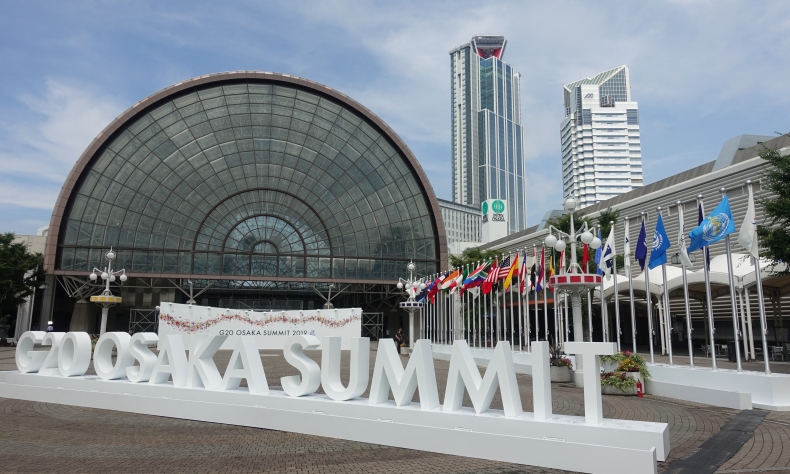
WTO Chief Economist: What Should Be Changed in the WTO Reform Under the Global Trade Friction?
“The fact that many members see the need for updating the WTO, is the biggest factor influencing the need for reform.”
As the world economy faces uncertainties and gloomy prospect, G20 leaders will discuss at the Osaka summit on how to send a message of opposing protectionism and tackle challenges to growth. In the meantime, the reform of the World Trade Organization (WTO) was also highlighted at the summit.
At the 2018 G20 Argentina Summit, world leaders made it clear that the WTO is in urgent need of reform in the context of the world economy, and proposed many effective proposals and policies for reform. But what really needs to be changed? In order to discuss this key issue, China Focus interviewed Chief Economist and Director of the Economic Research and Statistics Division, Robert Koopman, to understand the real situation about the WTO reform that has been going on during the G20 summit.
China Focus:The existing multilateral trade system rules, with the WTO at the core, have governed global trade for decades. But these rules are flawed and need reform. What do you think are the biggest factors influencing the need for reform by the WTO?
Robert Koopman: The fact that many members see the need for updating the WTO, is the biggest factor influencing the need for reform. If a large number of WTO members feel it needs reform then the organization needs to have a discussion about that need. A big driver of members’ views, I think, has been the rapidly changing global landscape in terms of economic geography, rapid change in technological forces on the global economy, and a broad perception that not all segments of society are benefitting as much as they could in the current circumstances.
China Focus:How can the organization serve members effectively?
Koopman: It is important that the organization be a place where members can share their views on topics of importance to them and for the organization to be flexible enough to accommodate a diverse range of member discussions on those topics.
China Focus: What aspect of reform are you most concerned about?
Koopman: What matters is where can members agree on those aspects of reforms that are most important to them.
China Focus: China has always supported the modernization and reform of the WTO, however any reforms must safeguard the WTO’s core values and basic principles. China has lowered import tariffs, increased sector access, cut down various barriers faced by foreign investors, and expanded the opening-up. How do you see the role of these measures in advancing the WTO reform?
Koopman: A major goal of the WTO is for global trade to flow as freely as possible. Lowering tariffs to all member countries is consistent with that goal.
China Focus: What is your expectation of China upholding multilateralism and anti-protectionism at the G20 summit in Osaka?
Koopman: I would hope China, and other WTO members, will engage constructively in search of common solutions to maintaining and improving the multilateral trading system.
China Focus: The reform of the WTO should uphold the two core values of the multilateral trading system, namely non-discrimination and openness. Will the tariffs hurt multilateral trade and have any other effects?
Koopman: There is a large body of economic analysis that indicates these measures, and others like them, are currently a drag on global growth.
China Focus: How should we respond to this?
Koopman: WTO members need to decide on how to resolve these issues and reach a common understanding of how best to improve global growth prospects.
Interviewer: Zheng Nan
Editor: Dong Lingyi
 Facebook
Facebook
 Twitter
Twitter
 Linkedin
Linkedin
 Google +
Google +










